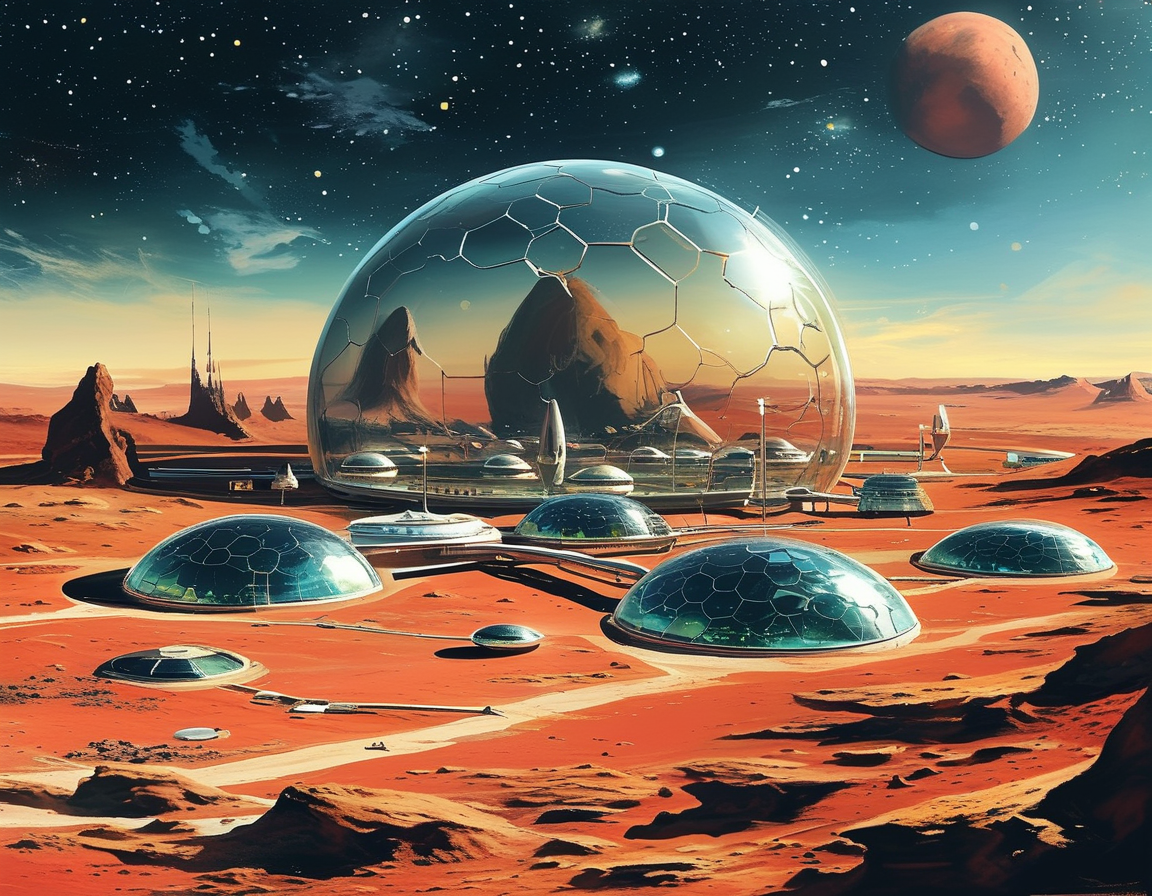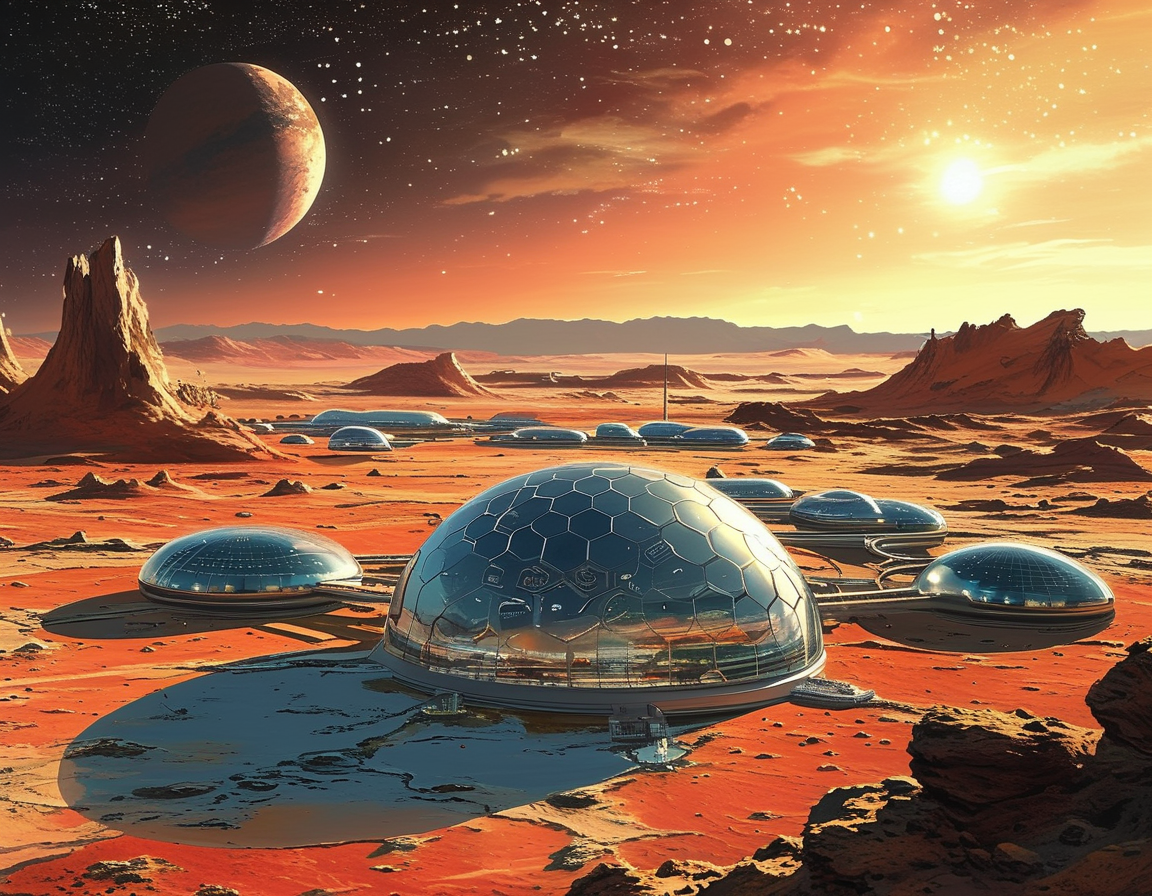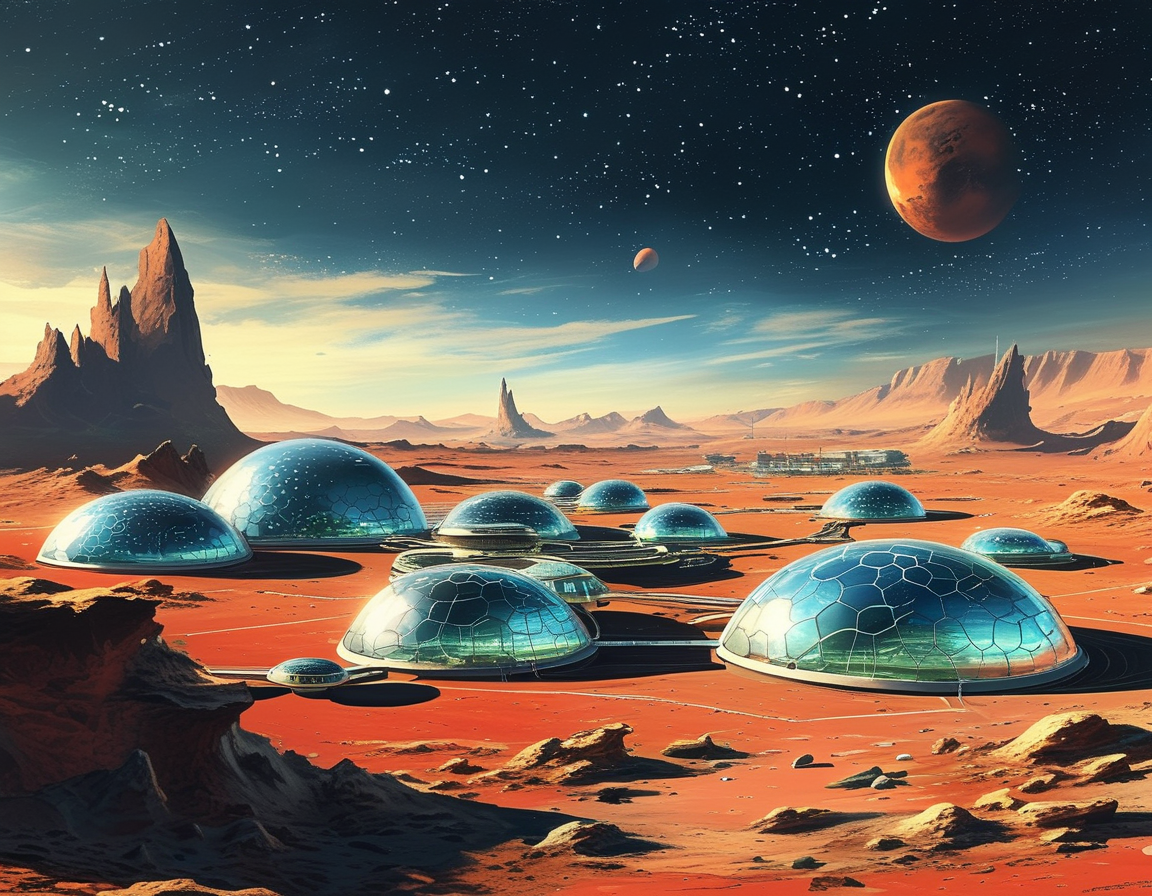The Sci-Fi Origins of a Billionaire’s Obsession
Elon Musk’s dreams of Mars didn’t spring from thin air. They stem from pages of science fiction classics. Books by authors like Isaac Asimov and Arthur C. Clarke painted worlds beyond Earth. Musk absorbed these stories. To him, they were not just fiction—they were blueprints for reality.
Musk’s obsession with Mars runs deep. In interviews, he often cites sci-fi as a critical influence. “The future should look like the future,” he states. It is a simple mantra, yet it captures his unwavering vision. For Musk, that future has always included Mars, a planet that symbolizes new beginnings and uncharted territories.

Various characters from sci-fi novels serve as inspiration for Musk’s ideas. He draws from the emotionally rich narratives crafted by Robert Heinlein and Kim Stanley Robinson. Their works lay out complex roadmaps for humanity reaching beyond its cradle. These tales fuel Musk’s ambition to transform Mars from a dream into a reality.
Mars and the Making of SpaceX
SpaceX, founded in 2002, began with a bold ambition: making life multiplanetary. Musk launched this venture with a clear goal. The early milestones were impressive, with the Falcon 1 becoming the first privately funded rocket to reach orbit. But for Musk, that was merely a stepping stone. Mars was the real destination.
In this quest, Starship emerged as SpaceX’s crowning achievement. Made from stainless steel and fully reusable, it is designed for interplanetary travel. Musk boasts that Starship can carry over 100 people and tons of cargo to our dusty neighbor. It is engineered to support human life on Mars.

Musk’s timeline may seem optimistic. He predicts that the first crewed mission to Mars could occur as soon as the late 2020s. Skeptics raise eyebrows, yet every test flight moves us closer to Musk’s dream. Whether his schedule holds up or not, one fact remains: SpaceX is preparing for a journey much farther than ever before.
Mars: The Final Insurance Policy?
Musk sees Mars not merely as adventure land but as a necessity for survival. “If something were to happen to Earth,” he muses, “having a self-sustaining city on Mars could be life’s backup drive.” The thought is chilling, yet it resonates with urgency.
This perspective reflects a deeper emotional drive. It’s about resilience and hope in adversity. In a world fraught with uncertainty, Musk perceives Mars as a sanctuary and a beacon of ambition. Humanity’s need to explore is not just a whimsical chase; it’s vital for our survival.

His vision compels us to ask: Can we adapt and grow, even in dire situations? Musk argues that, yes, a Martian city could be a lifeline worth pursuing. While it is a daunting task, it inspires a sense of possibility in a world often clouded by challenges.
A Colony of Sci-Fi Dreams
What does Musk envision for Mars? It’s more than just astronauts in spacesuits. He imagines a thriving city, complete with schools, jobs, and even WiFi. A self-sustaining civilization with farms and community life. This dream reflects the visions of famed authors, yet Musk is determined to turn fiction into fabric of life.
He speaks of solar-powered glass domes. These habitats will shield colonists from the harsh conditions. Underground dwellings promise safety from radiation, providing essential shelters. Musk’s ambitions don’t stop at survival. He contemplates terraforming—to turn Mars into a world that could mimic Earth.
Imagine a future where humans adapt. We discover ways to utilize Martian ice for water. Musk wants to make humanity bold enough to claim two worlds, a thrill that resonates with readers of speculative fiction everywhere.
The Critics vs. the Martian Mission
Not everyone supports Musk’s cosmic ambitions. Critics argue that solving Earth’s pressing issues should come first. Climate change, poverty, and inequality—these are urgent problems that require funding and attention. Some point fingers at Musk for chasing dreams ungrounded in reality.
Skeptics question whether colonizing Mars is even scientifically feasible. They wonder if it’s simply a rich man’s fantasy. However, Musk’s supporters argue otherwise. They assert that pushing the limits of technology expands possibilities. If new discoveries arise from ambitions to go to Mars, everyone stands to benefit.
Musk’s quest for Mars also serves as a rallying point. It’s about more than leaving our home; it’s about reigniting a sense of unity. In an era rife with division, the dream of another planet can inspire a shared vision. Could this mission bring humanity together? Perhaps.
The Final Frontier—or Just the Beginning?
Musk’s fascination with Mars is not newfound. It’s ingrained in him since boyhood, fueled by stories and dreams. Each chapter of his life leads him closer to this celestial goal. Musk’s journey is a blend of madness and vision, daring and determination.
If he succeeds, Mars may no longer just be a point in the night sky. It will represent a new chapter for all of humanity. SpaceX will be the vessel, and Musk the orchestrator, guiding us toward our cosmic leap.
As we ponder the dreams of a boy turned billionaire, we are reminded: the journey to Mars began with a story, faith in the future, and a will to venture beyond the confines of our existence.
Leave a Comment